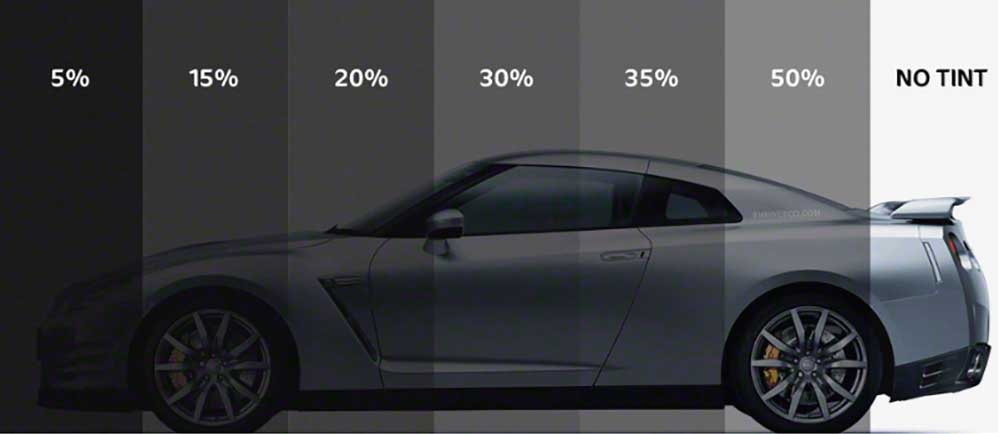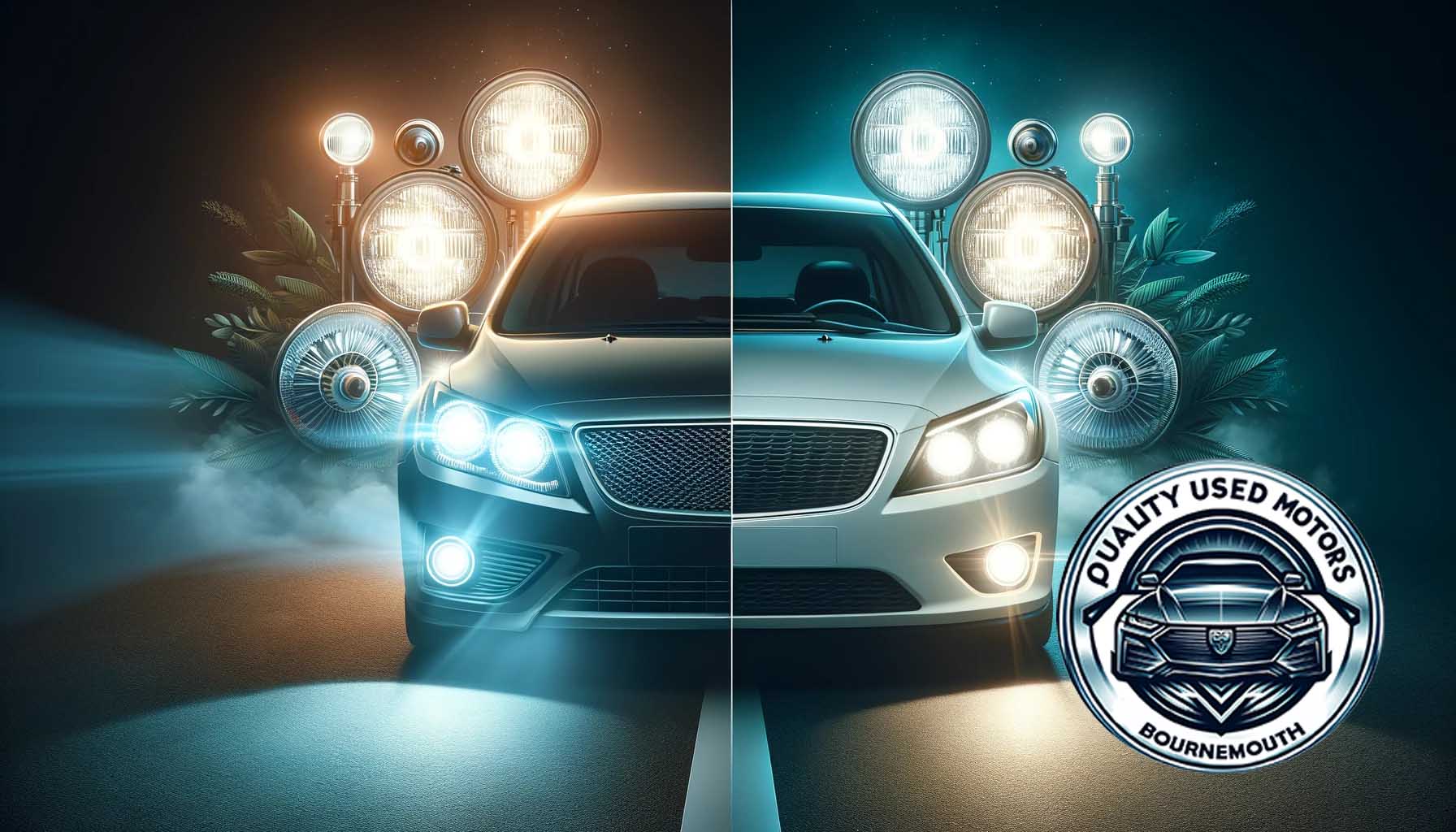Window tinting has become an increasingly sought-after addition for car enthusiasts and everyday drivers alike across the UK, serving not merely as an aesthetic upgrade but as a multifaceted enhancement to the vehicle’s functionality and occupants’ comfort. At Quality Used Motors, our mission is to provide a comprehensive overview of window tinting, detailing its numerous advantages, clarifying the legal framework within which it operates, and offering professional insights for those contemplating this modification.
The Benefits of Window Tinting: A Closer Look
Enhanced Privacy and Security
The immediate benefit of window tinting is the increased privacy it affords your vehicle. By darkening the windows, it obscures the view into the car’s interior, safeguarding both the occupants and any valuables inside. This deterrent effect on potential thieves cannot be overstated; a vehicle that keeps its contents hidden poses a significantly lesser target. This layer of privacy is particularly appreciated in urban environments where cars are frequently exposed to pedestrian traffic.
UV Protection and Reduced Sun Glare
The health and preservation benefits of window tinting are often underappreciated. Quality window films are engineered to filter out up to 99% of the sun’s harmful ultraviolet (UV) rays, which are known to contribute to skin cancer and premature ageing. Moreover, these tints play a crucial role in protecting the vehicle’s interior, particularly leather seats and dashboards, from UV-induced fading and cracking, thus maintaining the car’s resale value.
The reduction of sun glare is another pivotal advantage. By diminishing the intensity of sunlight that enters the vehicle, tints make for a safer and more comfortable driving experience. This glare reduction is not only beneficial during sunny days but also helps in mitigating the blinding effects of low sun in the winter months, enhancing overall visibility and reducing the likelihood of eye strain.
Improved Energy Efficiency
The capability of window tints to reflect away solar heat is a boon for energy efficiency within the vehicle. On sunny days, the interior of a car can become uncomfortably hot, prompting the use of air conditioning. Window tints mitigate this heat build-up, maintaining a cooler interior environment and allowing for more judicious use of the vehicle’s air conditioning system. This, in turn, leads to lower fuel consumption as the air conditioning system is one of the most significant contributors to increased fuel usage during warm weather.
Safety and Protection
The safety benefits of window tinting, particularly in the unfortunate event of an accident, are profound. Quality tinting films are designed to hold shattered glass together, significantly reducing the risk of injury from flying glass shards. This adhesive quality of the film ensures that the window remains intact as a single piece, offering an additional layer of protection to the vehicle’s occupants.
Understanding UK Laws on Window Tinting

Understanding the legal framework governing window tinting in the UK is crucial for car owners considering this upgrade. The regulations are designed to balance the benefits of window tinting with the essential need for safety and visibility on the roads. Here’s a detailed look at what the law says and the rationale behind these regulations:
Key Regulations on Window Tinting
The UK’s specific legal requirements for window tinting focus primarily on the front windscreen and the front side windows. These regulations ensure that enough light penetrates the vehicle to allow for safe driving conditions.
Front Windscreen: The law mandates that the front windscreen of any vehicle must allow at least 75% of light to pass through it. This requirement is in place to ensure that the driver has sufficient visibility of the road, other vehicles, and pedestrians, especially under adverse weather conditions or during the night.
Front Side Windows: For the driver’s and front passenger’s side windows, the minimum light transmission must be at least 70%. This level is set to ensure that drivers have adequate peripheral vision, which is vital for spotting oncoming traffic, pedestrians, and other potential hazards. It also helps other road users and law enforcement to see the vehicle’s occupants, which can be important for safety and security reasons.
Regulations for Rear Windows
The regulations are more lenient for the rear windows and the back windscreen, where the law permits darker tints. This allowance is made because these windows are less critical to the driver’s direct line of sight. Darker tints on these windows can significantly enhance privacy for passengers and security for valuables inside the vehicle without substantially impacting the driver’s ability to navigate the vehicle safely.
For car owners contemplating window tinting, navigating through the myriad of options and ensuring adherence to legal and safety standards can seem daunting. Here’s some expert advice to guide you through the process, ensuring you make informed decisions that enhance your vehicle’s aesthetics, functionality, and compliance with UK laws.
Expert Advice for Car Owners
Choose the Right Type of Tint
Window tinting is not a one-size-fits-all solution; it encompasses a variety of materials and shades, each tailored to different needs and preferences. The primary options available in the market include:
– Dyed Tints: These provide a darker look and some UV protection but may not offer significant heat reduction. They are the most economical option.
– Metallic Tints: These reflect heat and UV rays effectively, thanks to a metallic layer. They are more durable and offer a shiny appearance from the outside but can interfere with radio and GPS signals.
– Carbon Tints: Carbon window tints offer excellent heat rejection without the metallic film’s potential signal interference, providing a matte-finish look that can enhance the vehicle’s appearance.
– Ceramic Tints: The premium option, ceramic tints, offer superior UV protection and heat rejection, do not fade over time, and do not interfere with electronic signals. They are the most expensive but provide the best performance in terms of both comfort and protection.
Understanding your primary objectives—whether it’s UV protection, privacy, heat reduction, or simply aesthetic enhancement—is crucial in selecting the most suitable type of tint for your vehicle.
Professional Installation
To ensure that your window tints are applied flawlessly and comply with UK legal standards, professional installation is recommended. Experienced technicians are skilled in selecting the appropriate tint levels, applying the film without bubbles, and ensuring the edges are perfectly aligned with the window frame. They can navigate the nuances of different window shapes and sizes, ensuring a seamless finish that enhances your vehicle’s appearance while remaining within legal tint limits.
Maintenance and Care
Proper maintenance extends the life of your window tints and keeps them looking their best. Initially, window tints require a curing period, during which the film fully adheres to the glass. It’s important to follow your installer’s guidance on how long to wait before rolling down tinted windows to avoid peeling or damage. For cleaning, use a soft cloth and a mild, ammonia-free cleaning solution to prevent discolouration or damage to the tint film.
Check Insurance and Warranty
Modifications to your vehicle, including window tinting, can impact your insurance policy. Before proceeding with tinting, consult with your insurance provider to ensure that the modifications will not affect your coverage. Furthermore, inquire about the warranty provided by the tinting service. Reputable installers typically offer warranties covering bubbling, peeling, fading, and colour stability, safeguarding your investment and ensuring peace of mind.
Making the Most of Window Tinting: A Final Word
Window tinting stands as a valuable enhancement for vehicle owners, offering a suite of benefits that extend from bolstering privacy and security to elevating energy efficiency and occupant comfort. Yet, the key to reaping these benefits lies in a well-informed approach that encompasses a thorough understanding of the UK’s legal landscape surrounding window tints. By judiciously selecting the appropriate tint material, engaging skilled professionals for the installation, and carefully considering the potential impacts on insurance and the necessary care post-installation, car owners can fully enjoy the myriad advantages window tinting brings to the table. Quality Used Motors is committed to guiding our customers through this process, championing informed choices and strict compliance with legal guidelines to ensure that vehicle enhancements not only meet but exceed expectations.








